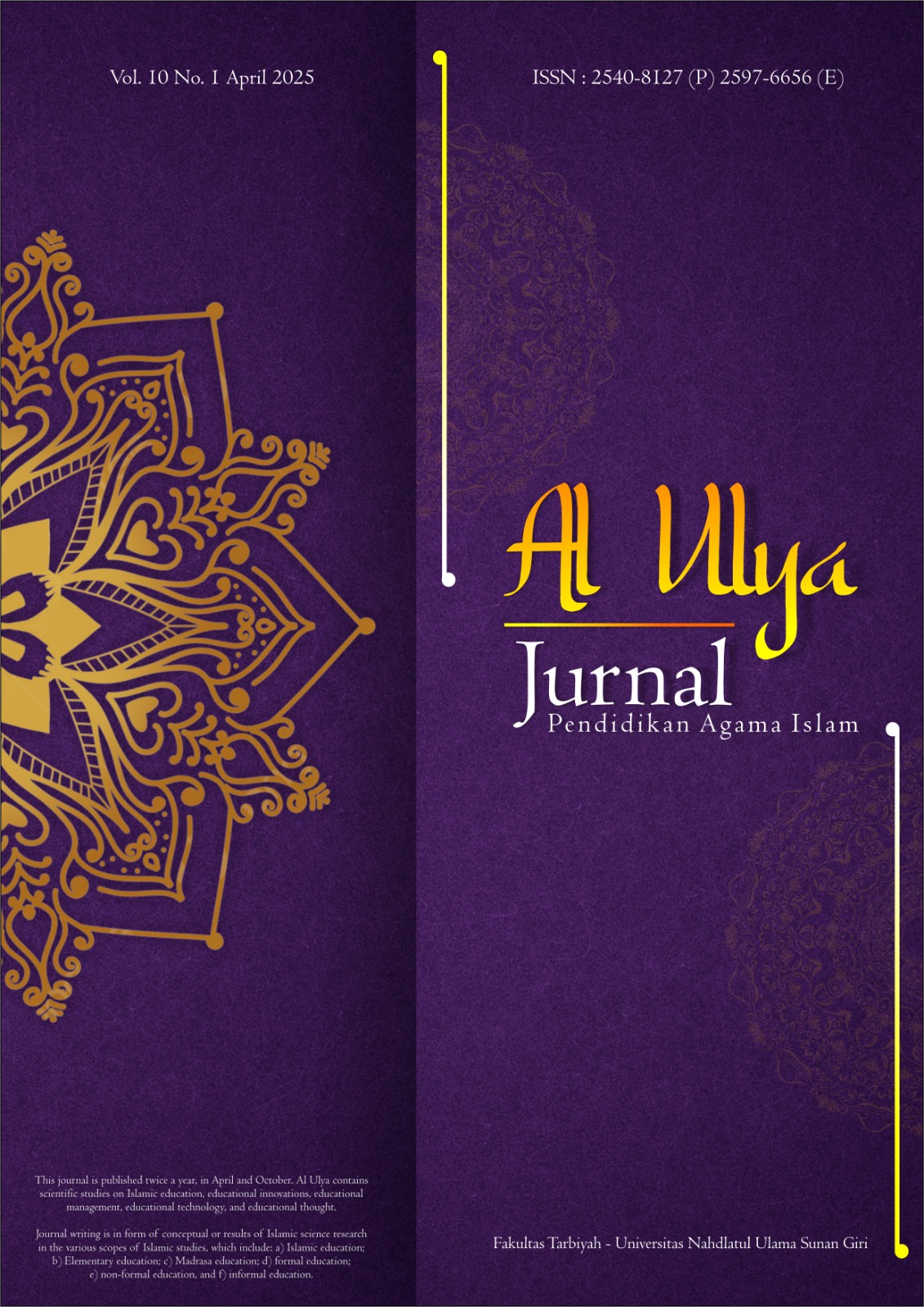Inclusive Islamic Education Learning for Students with Intellectual Disabilities in Secondary Schools

DOI:
https://doi.org/10.32665/alulya.v10i1.4146Keywords:
Islamic Religious Education, Inclusive, Intellectual DisabilityAbstract
Children with intellectual disabilities are those who face challenges in their intellectual development, which is below average. To ensure they receive the same educational rights, inclusive learning systems have been introduced in the educational world. This study aims to describe the implementation of inclusive education for children with intellectual disabilities in Islamic Religious Education subjects and to identify the challenges in implementing inclusive education for these children. This research uses a qualitative descriptive method with a case study approach, involving observation, interviews, and document analysis to collect data. The researcher then performs data reduction, presents the data, and draws/validates conclusions. The research was conducted at Al Firdaus Junior High School in Sukoharjo. The research findings indicate that teachers implement inclusive learning by entirely modifying the curriculum for children with intellectual disabilities. Modifications were made in three areas: content, process, and product. The challenges faced by Islamic Religious Education teachers include when children with intellectual disabilities experience bad moods, emotional tantrums, and difficulties with content that is too challenging for them.
Downloads
References
Children with intellectual disabilities are those who face challenges in their intellectual development, which is below average. To ensure they receive the same educational rights, inclusive learning systems have been introduced in the educational world. This study aims to describe the implementation of inclusive education for children with intellectual disabilities in Islamic Religious Education subjects and to identify the challenges in implementing inclusive education for these children. This research uses a qualitative descriptive method with a case study approach, involving observation, interviews, and document analysis to collect data. The researcher then performs data reduction, presents the data, and draws/validates conclusions. The research was conducted at Al Firdaus Junior High School in Sukoharjo. The research findings indicate that teachers implement inclusive learning by entirely modifying the curriculum for children with intellectual disabilities. Modifications were made in three areas: content, process, and product. The challenges faced by Islamic Religious Education teachers include when children with intellectual disabilities experience bad moods, emotional tantrums, and difficulties with content that is too challenging for them.
Downloads
Published
Issue
Section
License
Copyright (c) 2025 Zulfa Iftinani Muchtar, Mohamad Ali

This work is licensed under a Creative Commons Attribution 4.0 International License.
 PDF Download: 202
PDF Download: 202












